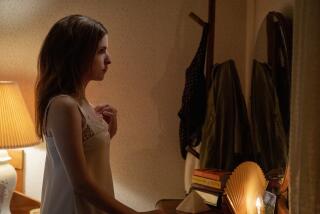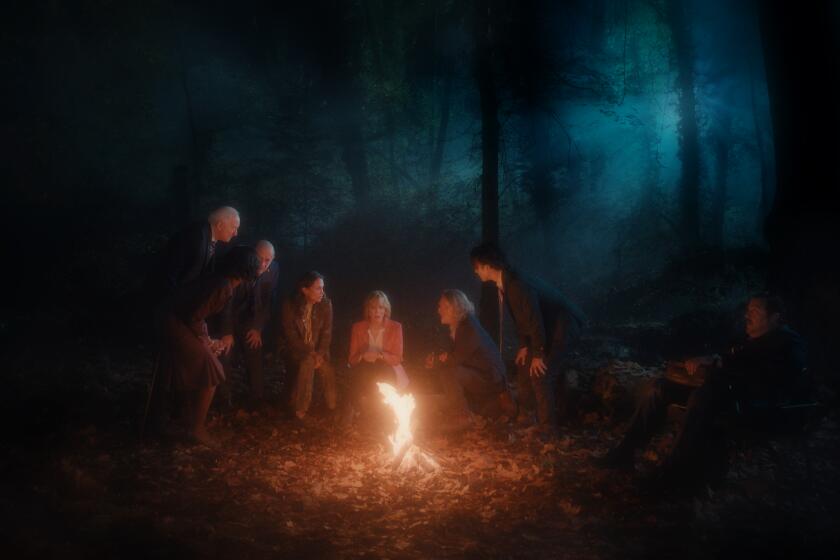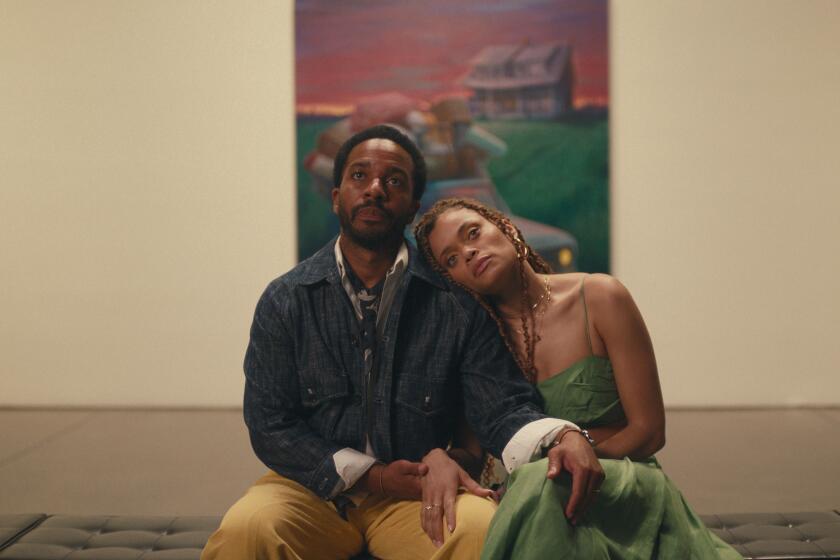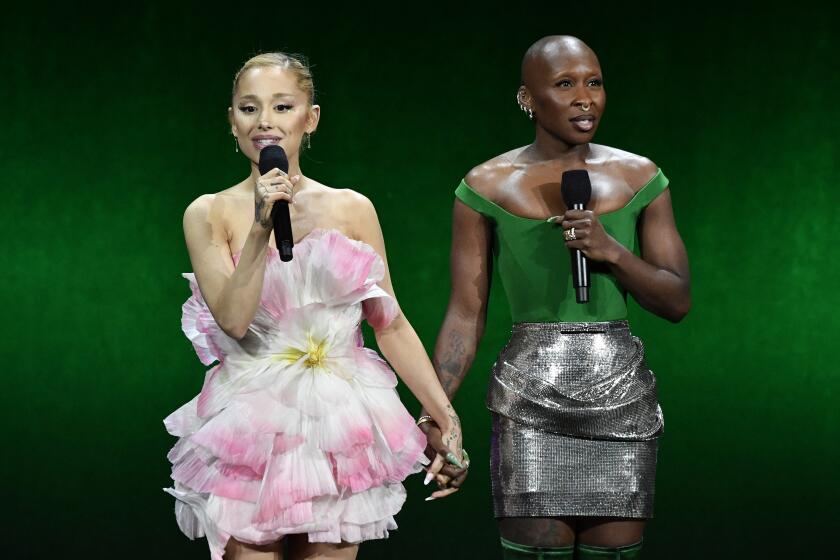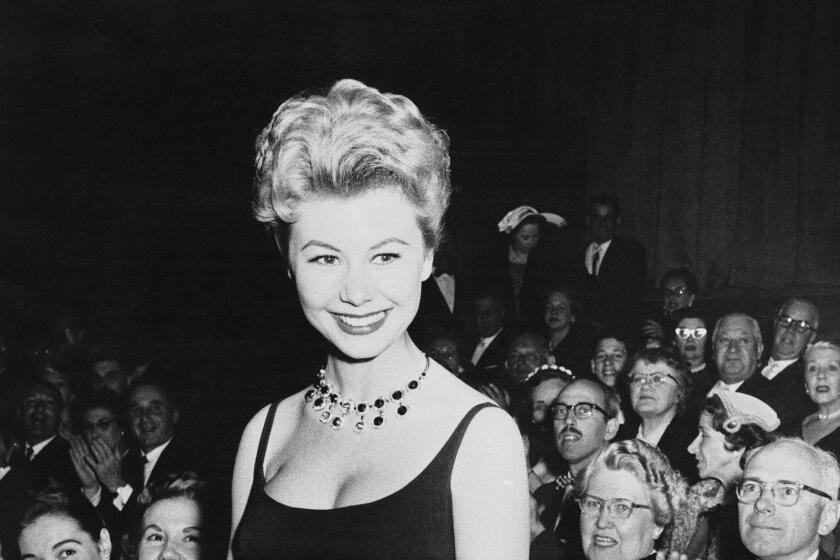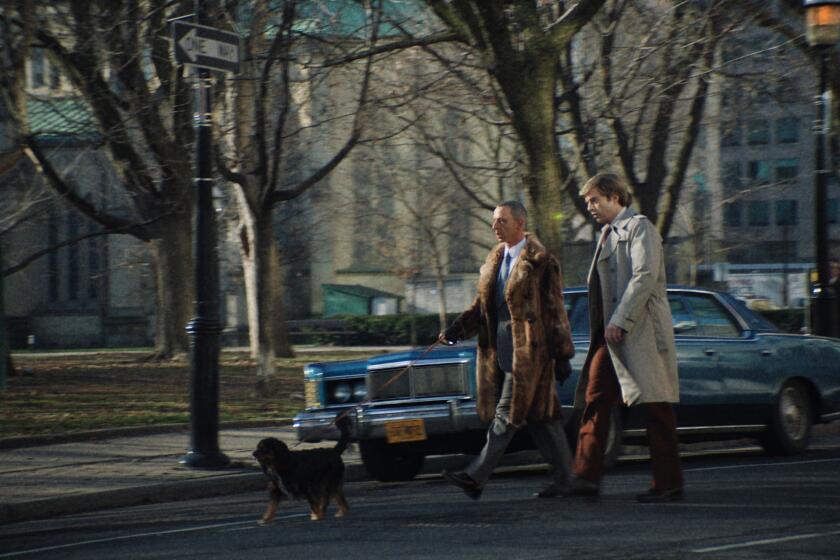Melville classic comes back to haunt
French director Jean-Pierre Melville is the great poet of crime cinema, and 1963’s “Le Doulos” -- starring Jean-Paul Belmondo and set in Paris, the most criminally romantic city in the world -- is a tour de force.
Playing for a week at the Nuart in West Los Angeles in a new 35 mm print, freshly subtitled by the always-expert Rialto Pictures, “Le Doulos” is a top-of-the-line existential gangster thriller, an unforgettable voyage into a world of trench coats, betrayal and despair.
Melville’s 1969 French resistance film, “Army of Shadows,” was a major U.S. revival hit last year. Both that film and “Le Doulos” are part of the director’s vision for a modern kind of tragic cinema. “Tragedy,” he once said, “is the immediacy of death that you get in the underworld, or at a particular time, such as war.”
Just as he renamed himself (after the author of “Moby Dick”), Melville created his own particular universe out of equal parts American cinematic style and French philosophical attitudes, an unlikely combination that the director had the filmmaking skill to make completely real.
A fan of all things American, Melville was especially partial to U.S. films of a certain era. “The movies reached perfection in the years 1934-5,” he told an interviewer. “Without the American cinema of those years, which I loved and still love with a passion, I wouldn’t be making movies and I would never have made ‘Le Doulos.’”
So “Le Doulos” is filled with numerous U.S. details, from the huge American cars his tough guys favor to the use of sash windows, not the French kind, to New York-style nightclubs in the heart of Paris where Melville’s characters nurse shots of whiskey, not aperitifs.
Yet somehow these things fit smoothly into the France of 1963, where bills are paid with huge franc bank notes, and public telephones take tokens called jetons. Just as unmistakably French is the film’s uncompromisingly fatalistic attitude, its sense of criminals as chain-smoking avatars of loneliness, desperate men who refuse to deviate from their stern moral codes.
The film’s title is also completely French. It refers first to a style of hat and then to the man who wears it, a man who as often as not was a police informer. (The film’s original American title was “Doulos, The Finger Man.”)
Written by Melville from a French crime novel, “Le Doulos” has a plot of fearsome complexity, involving betrayals and counterbetrayals as everyone wonders who the informer in their midst might be. The film begins with an unexpected killing and specializes in inexplicable actions that don’t get immediately explained.
Bringing all this to life is crackerjack acting from French actors of different generations, starting with Serge Reggiani, unforgettable as Simone Signoret’s costar in “Casque d’Or,” who plays Faugel, a thief recently released from prison. Belmondo, then at the beginning of his great fame, plays Silien, Faugel’s best friend and all-around suspicious character. And then there is a mid-career Michel Piccoli as the shady nightclub owner Nuttheccio and Jean Dessailly as the police’s Capt. Clain, ruthless as any criminal.
Working with cinematographer Nicholas Hayer, Melville stirs this pot with enviable filmmaking. There is a bravura nine-minute, 38-second scene in Clain’s office, done in a single shot, and the extraordinary half-lit tracking shot of Faugel walking purposefully down a covered walkway that begins the film. And always there is the darkness, the soul-destroying shadows that overwhelm the lonely streetlights that try to hold it back, shadows that snuff out hope and dreams before they even have a chance.
--
No MPAA rating. Running time: 1 hour, 48 minutes. Nuart, Santa Monica Boulevard at the San Diego Freeway.
More to Read
Only good movies
Get the Indie Focus newsletter, Mark Olsen's weekly guide to the world of cinema.
You may occasionally receive promotional content from the Los Angeles Times.

